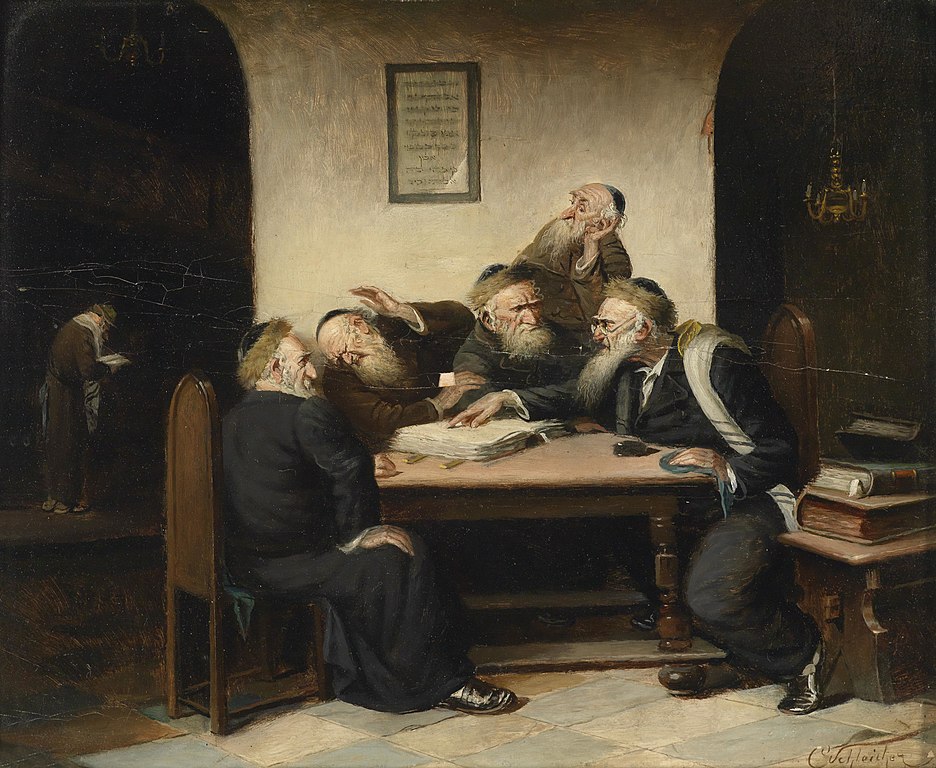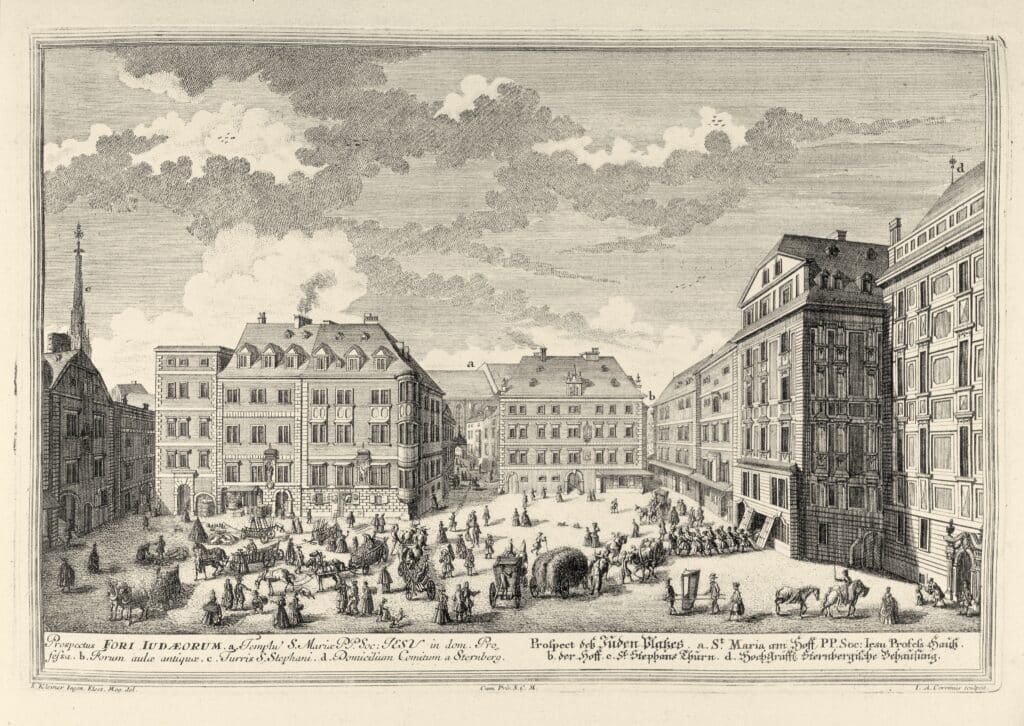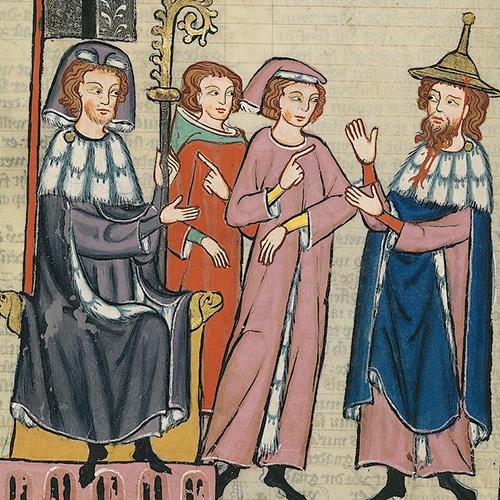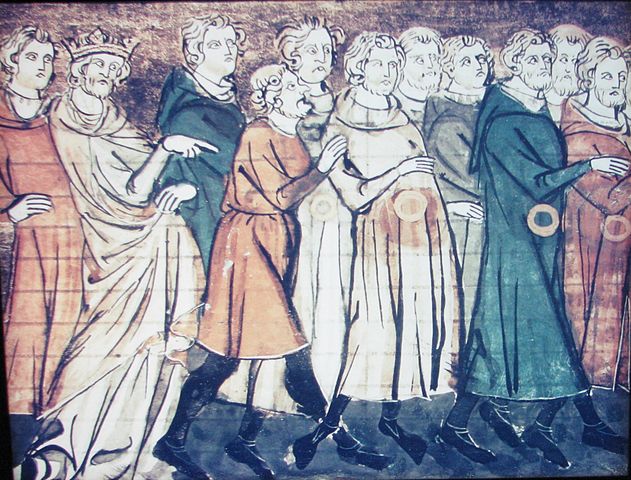Are Jews rich? First off, if you’re here for crazy stuff like lizard people and the illuminati you’ve come to the wrong place. We’re not doing the whole antisemitic canard about global conspiracies thing. We’re trying to ask and answer a serious question.
And it’s a question with big implications. On the one hand, the idea of Jewish wealth is a source of great admiration, a source of philo-semitism among the people of the world.
On the other hand—Jewish wealth is exactly the kind of thing that fuels antisemitism of the worst kind.
What’s crazy is that a sentence like, “Jews are leaders of industry” or “Jews run the biggest companies”—you could easily imagine that same sentence said by a rabid anti-semite AND an admirer of the Jewish people.
That line between that anti- and philo-semitism? It can be really hard to figure out.
First off, let’s just check the numbers. For the purposes of this discussion, we’ll focus on American Jews. According to the 2020 Pew Research Center report on Jewish Americans the answer is…drumroll, please…that Jews are at least a little richer than average. Half of all Jews surveyed reported a six figure income, in comparison with a third of Americans overall who reported a similar income. And that disparity gets wider as you move up. A quarter of American Jews report family incomes over $200,000, a level that just 4% of Americans overall reach.

Before we go any further, it should be noted that Jews are also poor: 10% of Jews live on incomes below $30,000, roughly equal to 11.4% of Americans overall. (In Israel, by the way, 17.7% of its Jewish population lives below the poverty line, so this isn’t just an American thing.)
But clearly, Jews are also statistically overrepresented among America’s wealthy.
And yet, Jews are also vastly overrepresented in many other fields. Like David Brooks has pointed out:
- Jews make up 0.2 percent of the world population, but 54% of the world chess champions
- 27% of the Nobel physics laureates and 31% of the medicine laureates.
- They make up 2% of the U.S. population, but 21% of the Ivy League student bodies
- 38% of those on a recent Business Week list of leading philanthropists…
So before we start talking about a vast world chess conspiracy, let’s genuinely ask ourselves, So…what is it about the Jewish people that makes them so adept at success?
The answer, like most actual answers to complex topics, is not so simple…

One major factor is education. The commandments and laws of the Torah are central to Judaism, and Jews have been carefully reading the Torah to follow its laws for millenia.
Well, not every Jew. As the Jews interpreted and applied the laws, they wrote more and more books delving into greater and greater detail. First the Mishnah, then the Talmud, and then hundreds of more and more books of law and commentaries. To be sure not all Jews were scholars, but a heavy emphasis and great prestige was placed on knowledge of the law and education. And as a result, virtually every time and place that Jews lived, they tended to reach a higher level of literacy and numeracy than the surrounding non-Jewish populations.
Now add to that urbanization. Once the Jewish people were mostly exiled from the land of Israel in the first and second centuries CE, they congregated into villages, towns, and later cities across the diaspora. Why? Well, the Jewish religion is a communal one. A standard community would require a synagogue within walking distance and traditionally, a quorum of at least ten adult males for prayer. It would need a well maintained mikvah for observance of purity laws, a Rabbi to decide matters of law, a butcher for food, and a scribe for contracts and ritual texts. In short, Jews need other Jews to properly practice Judaism.

And more than that, there were external factors driving Jewish urbanization. Jews in Christian Europe and the Muslim Middle East were second class citizens. Rules and laws were almost always placed on where they could live, and for political reasons they were often placed nearby centers of power. These large towns were – like large cities today – the nexus points of knowledge, trade and wealth. These closely associated and externally and internally enforced communal networks would’ve spread across continents in cities large enough to support them, creating a natural network for trade.
Okay, so, are you still with me? Let’s put it all together. I’ll say it like this. An average Jew in 12th century Paris could go to the market and buy wool from farmers. He could then travel to far off Islamic Cairo and – even in a time when Christians and Muslims were not especially hospitable to each other – meet with someone who spoke, wrote and read a similar language, and abided by the same Jewish economic laws. There he could sell the wool and return with silk and spices, along with contracts for more of the same.

In this way, Jews would have already been ahead of the curve in establishing finance and trade routes that would’ve cut out the various middlemen required for a German or Frenchman to do the same thing. One group, known to us as the Rhadanites – go down a Wikipedia rabbit hole about these people – had a trade network that stretched from the English Channel to the Indian Ocean from the 6th through the 11th centuries. Think about that. While Charlemagne was still uniting the Gauls, Jews were trading Chinese goods to Anglo Saxon England.
There’s another important contributing factor to Jewish wealth that had to do with their unique position in Catholic society. Early Church law, like Jewish law, forbade lenders from charging interest on loans – but only between Christians. Jews were exempt from the ban on moneylending, and therefore benefited from an ironic monopoly that lasted for a few centuries.

So in the Middle Ages, when kings and princes needed large amounts of money for wars and other risky ventures, they went to Jews. Jews were so important in this role that they had a special distinction in medieval law as the servi camerae regis, “Servants of the Royal Chamber.” Basically, they were owned by the king and the king alone. Anyone who’s studied Jewish life in the middle ages knows it wasn’t all great. Jews may have benefited from the King’s protection, who valued their contributions to the economy and especially their status as a source of tax revenue. But as important as credit was to these developing societies, Jews were always at risk of popular peasant uprising known as pogroms. And those were the good times.
Major nobles in debt could stir up popular resentment and initiate violent anti-Jewish riots just to get out of repaying loans. Kings who owed their Jewish subjects too much could and did simply default on their loans, kick the Jews out, and confiscate their property, and then re-invite them after they’d used up all their funds and needed more loans. Sound ridiculous? The kings of France did it. Twice. First in 1182, then in 1306, before finally kicking them out for good in 1394.

So even in those places and times where Jews were allowed to own land, it often proved a poor investment if Jews were summarily expelled. Having a skill or profession you could take with you was often a much more valuable source of wealth. By necessity, Jews excelled in skilled labor and fields of knowledge like medicine and finance. They traded in precious stones and metals that could be easily moved. And they developed an entrepreneurial spirit, specializing in high-risk high-reward ventures and previously unknown ways of generating wealth
Again, let’s be very clear here, not all Jews were rich, and even among those wealthy few, many who bet big lost their fortunes and often their lives. But over the centuries, many became very wealthy, and inevitably, they reinvested that wealth in more education and higher standards for communal living.
By the time modern secular nation states emerged, Jews, so long on the outside looking in, were well-equipped to take a role in government, academics, and finances. And indeed many did, at significant rates. In the free and capitalist society of early America, Jews thrived like never before.
So, are Jews wealthy? Statistically yes. While many are poor, on average, Jews are wealthier. Why? If you want hateful and myopic views on the matter, check out the comment section below, I’m sure it’ll be filled with some wildly interesting reasons. But if you want a genuinely thoughtful and historically reasoned answer, it’s because Jews value education, gravitate to urban environments where economic opportunity is greater, and have developed a culture that values entrepreneurship.
I heard a saying once that really struck me: “Criticism is the tax you pay for success.” Jews have had an unbelievable amount of success, and an unbelievable amount of criticism, and much worse than criticism. But I don’t think we should be embarrassed of that success.
And, just one more point I want to make, and perhaps the most important one. We’ve been using the terms “success” and material “wealth” as if they are synonymous, but it’s a comparison that loses so much of the uniqueness of Jewish life. The ancient Sage Ben Zoma asks, “who is wealthy?” and answers, “one who is happy with what one has.” The Jews didn’t congregate into cities or focus on education to become rich. They did those things to preserve what they had: their way of life and their Torah.
From Moses to Maimonidies to Rav Menachem Mendel Schneerson, the names that come down to us through time are not famous merchants and moneylenders, they’re martyrs and mystics and scholars and saints.
They’re the preservers of our tradition and the leaders of our communities. So perhaps the greatest answer to the question “why are Jews rich” is because we define success as so much more than just wealth.
